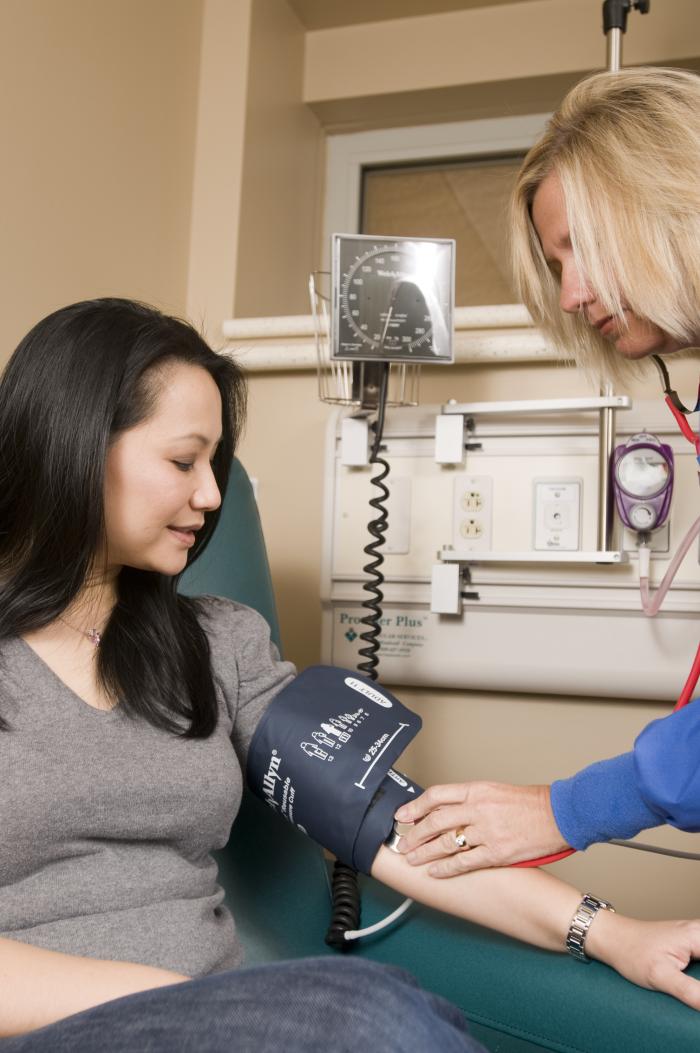August 29th, 2013
Managing Hypertension – Not as Easy as It Once Seemed
Paul A. Bergl, MD
CardioExchange welcomes this guest post from Dr. Paul Bergl, Chief Resident at the University of Chicago Medical Center. This piece originally appeared on the NEJM Journal Watch blog, Insights on Residency Training.
Hypertension…
As a medical student, I never really understood the fuss over it. Practicioners had an excellent and concise guide in the JNC-7 to handle all of the major aspects of this disease. The JNC-7 guidelines were algorithmic, and a helpful table of compelling indications for antihypertensive agents couldn’t make life any easier.
I soon realized a little more finesse was required of the internist-in-training. JNC-7 didn’t tell the whole story. My attendings all had slightly different opinions on the optimal strategies for control, and these approaches might contradict my antihypertensive gospel.
Hydrochlorothiazide was replaced by chlorthalidone after a preceptor noted, “All of the important studies on thiazides were done with chlorthalidone.” After adopting its use, I found another internist who advised, “Chlorthalidone just causes more hypokalemia. There’s no reason to believe HCTZ is inferior.” So, back to HCTZ. Soon after, I learned that calcium-channel blockers were a preferred option for isolated systolic hypertension in elders. “Diuretics just make older patients dizzy, dehydrated, and hyponatremic.” And the advice continued to accumulate in the form of these little pearls.
To complicate matters further, various societies and expert-written guidelines also had a slightly different take on the ideal systolic and diastolic pressures. I was becoming dizzy myself. Do I target a systolic blood pressure of 130 mm Hg in patients with diabetes? Or was that patients with CKD? Or is the diastolic blood pressure more important? And does it really matter?
Well, if JNC-8 looks anything like the Eurpoean Society of Hypertension/European Society of Cardiology joint guidelines that are so nicely summarized in Joanne Foody’s NEJM Journal Watch article, we can all breathe a sigh of relief. As Dr. Foody highlights, these guidelines emphasize a more universal blood pressure target of 140/90 mm Hg and a greater focus on global cardiovascular risk. I haven’t gotten through the whole document, but I was also glad that these guidelines allow for more lenient control in elders. And these guidelines are not at all prescriptive in the choice of antihypertensive medications.
A brief report in Physician’s First Watch on a common class of antihypertenisves also caught my eye this past week. Staff writer Amy Orciari Herman reported on the recent JAMA Internal Medicine article by Christopher Li et al showing an association between long-standing calcium channel blocker (CCB) use and risk for breast cancer.
The article gave me pause for one major reason: I really fell in love with CCB’s as a house officer. CCB’s struck me as an affordable, convenient, and efficacious antihypertensive class. Amlodipine in particular seemed to promise worry-free prescribing to this young physician. Patients liked the once-daily dosing and small pill size. Since amlodipine required no periodic electrolyte checks and side effects are uncommon, I would gladly discharge a patient from the hospital on it. If the patient was lost to follow-up, I probably wouldn’t be on the hook for an adverse drug effect.
Or maybe I will be. This population cohort study suggests an elevated risk of breast cancer with CCB’s. While this study doesn’t prove causality, it should make us all a little more circumspect about the antihypertensives we choose.
In the end, these articles gave me a chance to reflect on what we ought to teach residents about managing hypertension. I expect I will keep my teaching simple in the coming years:
- Go for 140/90 in everyone; be a little more lax in those with advanced age.
- Make sure your choice of an antihypertensive is rational.
- Every drug has side effects and risk; make sure your choice to treat hypertension is rational.


Has any drug besides a diuretic consistently demonstrated its ability to lower the stroke risk in patients with hypertension?
At the conclusion of a lecture at the Columbia University forum on hypertension last year, I wrote on my speaker evaluation form, “I loved this guy; he confirmed my confusion.”
I am sure there are times when my patients must wonder at my competency level when I struggle to find the right regimen for them when the algorithm seems not to work or apply.
I think this one is a tough call. A much older literature in the 1990s was mixed as to a possible causal link between calcium channel blockers and breast cancer. Most investigators, however, abandoned this line of research when multiple studies showed no significant link. For example, the Meier et al. (2000) study of about 17,000 women from the General Practice Research Database showed no connection. Similarly, the Nurse’s Health Study of over 18,000 women shown no association (Michels et al., 1998). Considering that the recent Li et al. (2013) study does show increased breast cancer risk with CCBs, I think we can only conclude that further research is clearly needed on this topic. If that research should confirm an association, we would also need to know the relative morbidity and mortality rates. Do the CCBs increase morbidity and mortality from breast cancer to a lesser or greater extent than they decrease the risk of adverse cardiovascular outcomes? In the meantime, it would seem prudent to consider using caution in making decisions concerning the use of the CCBs in women.
Paul’s article is relevant to the confusion prevailing in many clinicians mind about the BP targets and the selection of the most appropriate drugs. His final comments on his teachings in coming years are exemplary I’d add one more — Don’t be too aggressive and be sure that the BP does’nt fall below 100/70 mm of Hg.
Beware of summer heat waves (the earth is getting warmer), the BP falls. Instruct your patients beforehand!